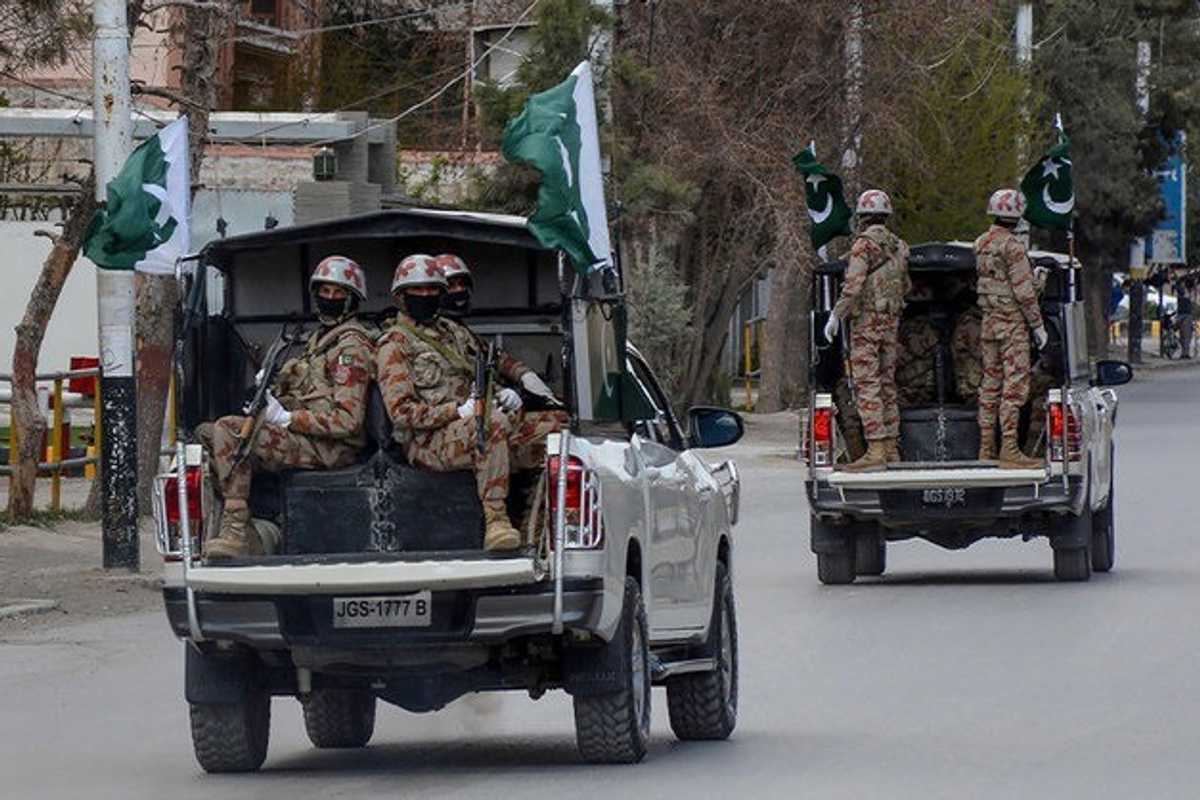Pakistan passes bill granting armed forces broader powers to detain terror suspects
Anti-Terrorism Act (Amendment) Bill 2024 allows armed forces power to hold suspects beyond three months

Javed Hussain
Correspondent
I have almost 20 years of experience in print, radio, and TV media. I started my career with "Daily Jang" after which I got the opportunity to work in FM 103, Radio Pakistan, News One, Ab Tak News, Dawn News TV, Dunya News, 92 News and regional channels Rohi TV, Apna Channel and Sach TV where I worked and gained experience in different areas of all three mediums. My journey from reporting to news anchor in these organisations was excellent. Now, I am working as a correspondent with Nukta in Islamabad, where I get the opportunity of in-depth journalism and storytelling while I am now covering parliamentary affairs, politics, and technology.

Pakistan’s National Assembly passed on Wednesday the Anti-Terrorism Act (Amendment) Bill 2024 by a majority vote, granting the armed forces and civil armed forces broader authority to detain individuals suspected of involvement in terrorism-related activities.
The session, chaired by Speaker Sardar Ayaz Sadiq, saw the legislation move forward despite strong objections from opposition lawmakers. The bill will now be sent to the Senate.
The bill, which was introduced by Interior Minister Mohsin Naqvi on Nov. 1, 2024, and referred to the Standing Committee on Home Affairs for further review, amends sub-clauses one and two of Section 11EEEE of the Anti-Terrorism Act, 1997. The Standing Committee approved the bill on Aug. 5, 2025.
What the bill says?
Under the amendment, a person suspected of involvement in offenses linked to national security, national defense, target killings, kidnapping for ransom, or extortion can be detained for up to three months if there is solid evidence or credible information.
Detention beyond three months will be allowed under Article 10 of Pakistan’s constitution if sufficient grounds exist. Orders for detention will be issued by the armed forces or civil armed forces and investigated by a Joint Investigation Team.
The Joint Investigation Team, or JIT, will include police officers of superintendent rank, as well as members of intelligence agencies, the armed forces, the civil armed forces, and other law enforcement agencies.
The provisions introduced under this amendment will remain in force for three years from the date the law takes effect, after which they will expire unless renewed.
The assembly approved an amendment moved by Pakistan Peoples Party lawmaker Syed Naveed Qamar but rejected two amendments proposed by Jamiat Ulema-e-Islam member Alia Kamran.
In the statement of objectives and reasons for the bill, Interior Minister Naqvi said Section 11EEEE was amended in 2014 to empower the government and authorized armed forces or civil armed forces to take preventive detention of persons suspected of involvement in terrorism-related activities. This provision allowed suspects to be detained for more than three months in order to conduct thorough investigations and prevent potential acts of terrorism.
The 2014 amendment was subject to a two-year sunset clause and expired in 2016. Naqvi said the current security situation required restoring those powers to enable the government, armed forces, and civil armed forces to take preemptive action against individuals who pose a significant threat to national security.
He said the provision would allow for detention based on credible information or reasonable suspicion, giving law enforcement legal authority to act before terrorist plots could be carried out. It would also facilitate the use of Joint Investigation Teams to conduct in-depth inquiries and gather actionable intelligence.
Opposition stages walkout
The bill states that reinstating these powers is necessary for an effective counterterrorism response. It emphasizes that the amendment will strengthen the capacity of law enforcement agencies to act against terrorism by enabling coordinated investigations involving multiple security and intelligence bodies.
All opposition parties, including Pakistan Tehreek-e-Insaf and Jamiat Ulema-e-Islam, opposed the legislation and staged a walkout from the assembly chamber after their objections were rejected.







Comments
See what people are discussing